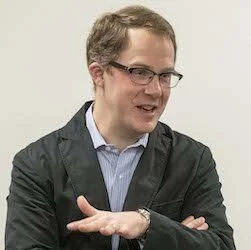American Football is a game played with 11 players on offense competing against 11 players on defense, with a sequence of plays executed as one team attempts to outscore the other, but each discrete play reflects actions on the field by players and off the field by coaches. For example, what is the best spot on the field to complete a pass and not get it intercepted? How do quarterbacks differ with respect to their release points? When should you ice the kicker? These are the questions that we are trying to answer on this special football-themed episode of Stats+Stories.
Rory McIlroy was leading the 2025 U.S. Masters golf tournament by two strokes after three rounds. So was his ultimate victory a sure thing? How predictive is a lead after three rounds of a golf tournament for victory after the 4th round? In today's episode of stats and stories, we hit the links to explore outcomes in professional golf tournaments, along with addressing whether golf handicaps make for fair comparisons between golfers with guest Dr. Lawrence L. Kupper.
Sports generate a lot of data among them individual player metrics, team performance data, and specific game statistics. And there are a lot of tools to crunch all those numbers. Learning to use them can be a challenge and is the focus of many sport analytics classes offered in the United States. We hear about one professor’s approach to teaching sports stats in this episode of Stats and Stories, where we explore the statistics behind the stories with guest Mark Glickman.
Athletes around the world are preparing to live out their Olympic dreams in Paris this summer. Many of those athletes have been competing in national and world championships before participating in Olympic trials in order to join their national teams. But how can an athlete be sure they’re peaking at the right time? How can they know whether adding an additional element to a routine or changing the angle of a throw will give them an advantage over the competition? Well, there’s data for that and that’s the focus of this episode of Stats and Stories, with guest Daniel Webb
Dan Webb is the Director of Performance Analytics at the United States Olympic and Paralympic Committee (USOPC) in Colorado Springs and accomplished leader in performance analytics and sports science, using innovative data science and statistical modeling methods to solve challenging performance problems. Dan has led efforts to develop and implement cutting-edge solutions to model and predict Olympic-level performance, enabling data-informed decision-making for both the USOPC and NGBs. Under Dan's leadership, the Performance Innovation department continues to provide integrated and sustained competitive advantages for Team USA by deriving insights from data to improve athlete performance and optimize training, competition, and resource allocation strategies.
Welcome to Stats+Stories today we are trying something a bit different, with Major League Baseball’s opening day just hours away from the release of this episode we thought we would go back into the vault and throw some old school Stats+Stories baseball episodes at you. The first of which is as far back as you can go into the Stats+Stories archive, our first episode with former host Bob Long former panelist Richard Campbell, and guest Jim Albert who helped usher the show into what it has become today. So without further ado here is episode one, “Baseball and Statistics” with Jim Albert.
The second episode features Terence Moore. Moore, who has worked at Atlanta Journal Constitution, CNN, ESPN and other notable outlets had a lot to say about “Reporting On Sports In The Digital Era” so I’ll let him take it away with episode 18.
Last but certainly not least, we have a much more modern episode of the show which ironically happens to be about the oldest “Numbers Behind America’s Pastime”. Christopher Phillips joined us in episode 177 to discuss the entirety of baseball history from the first big league reporter from the early 1900s to the moneyball craze over a century later.









